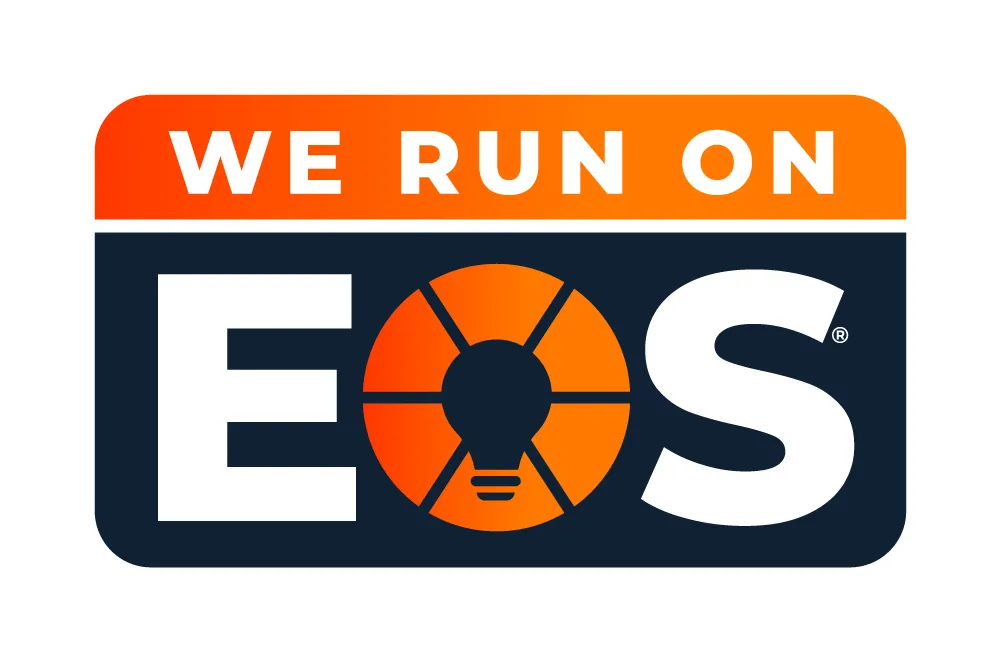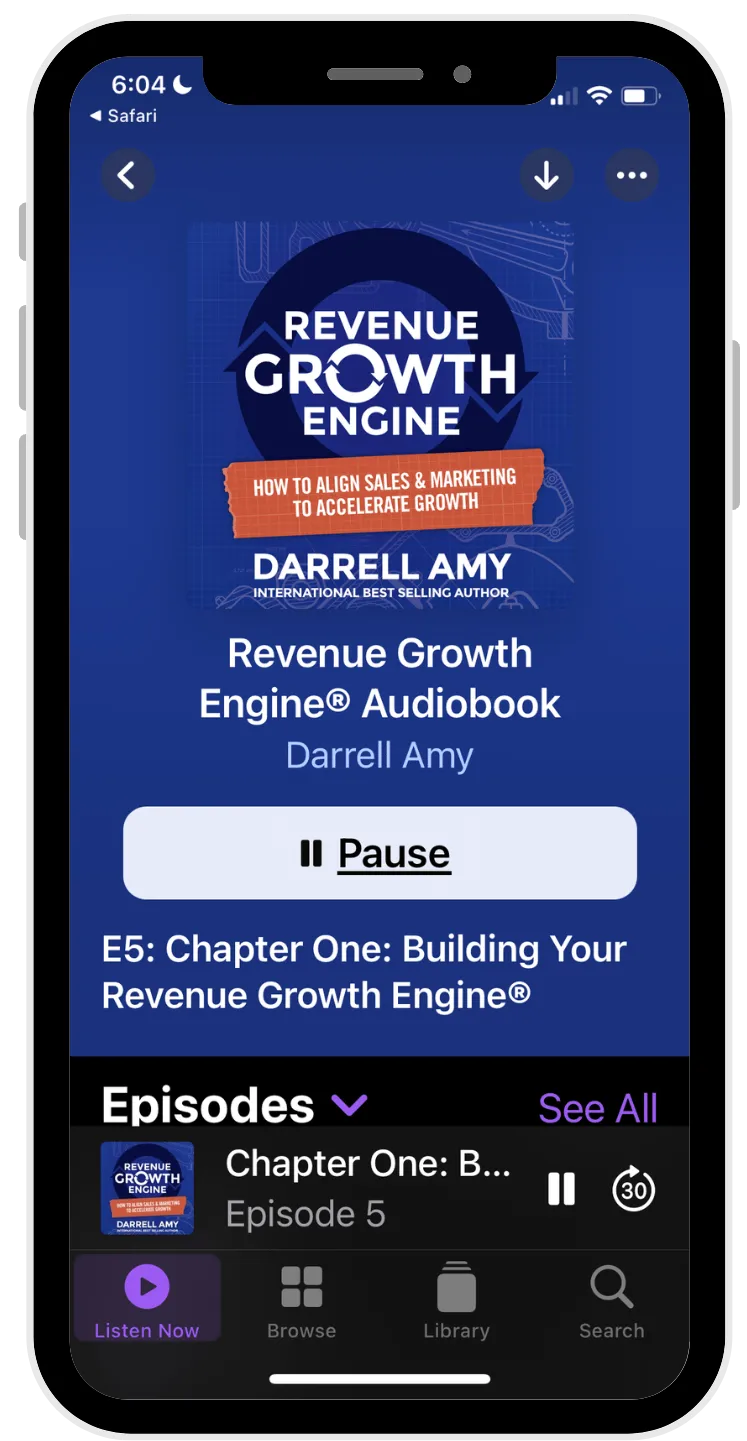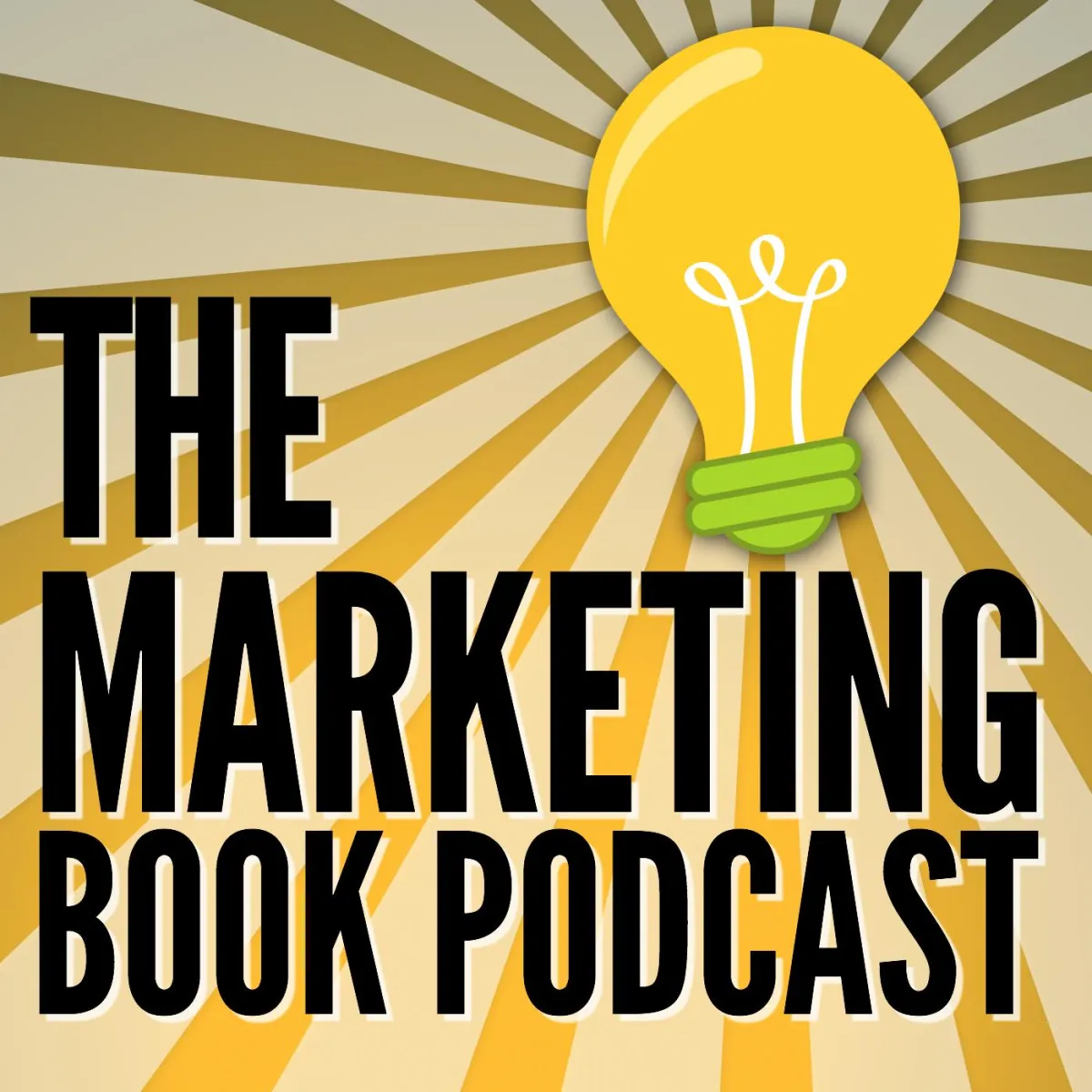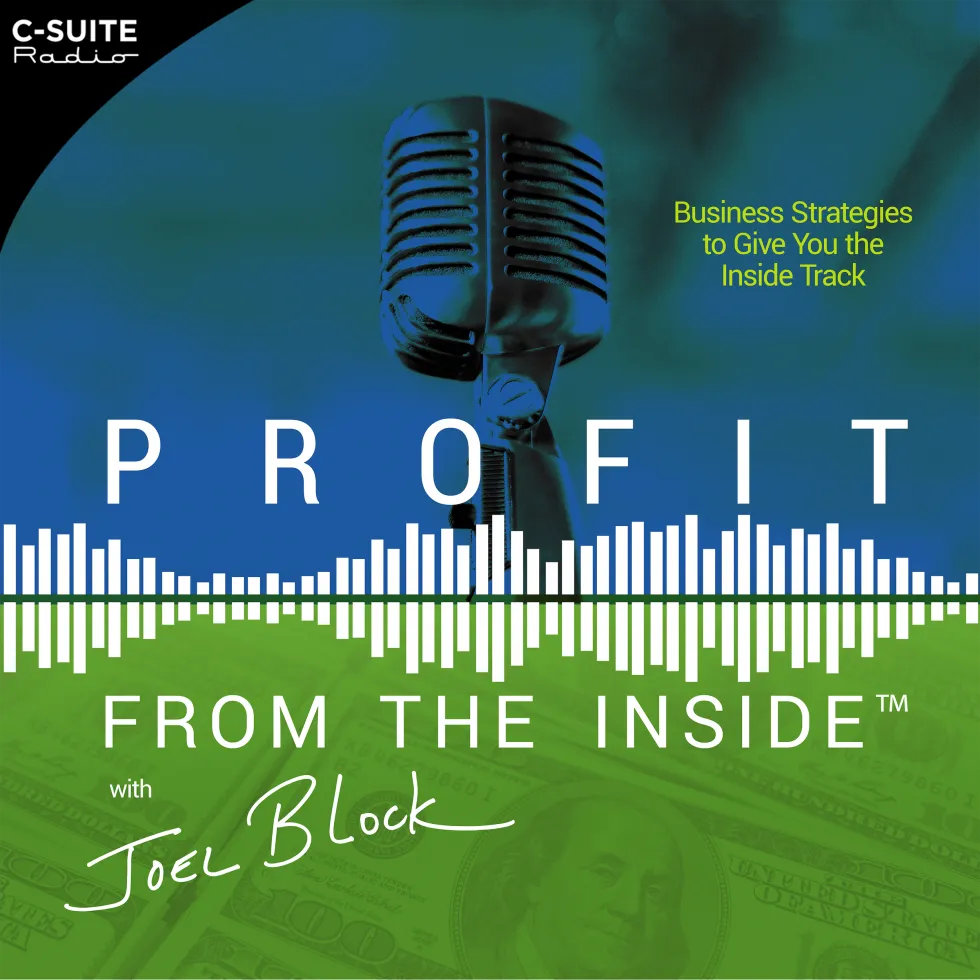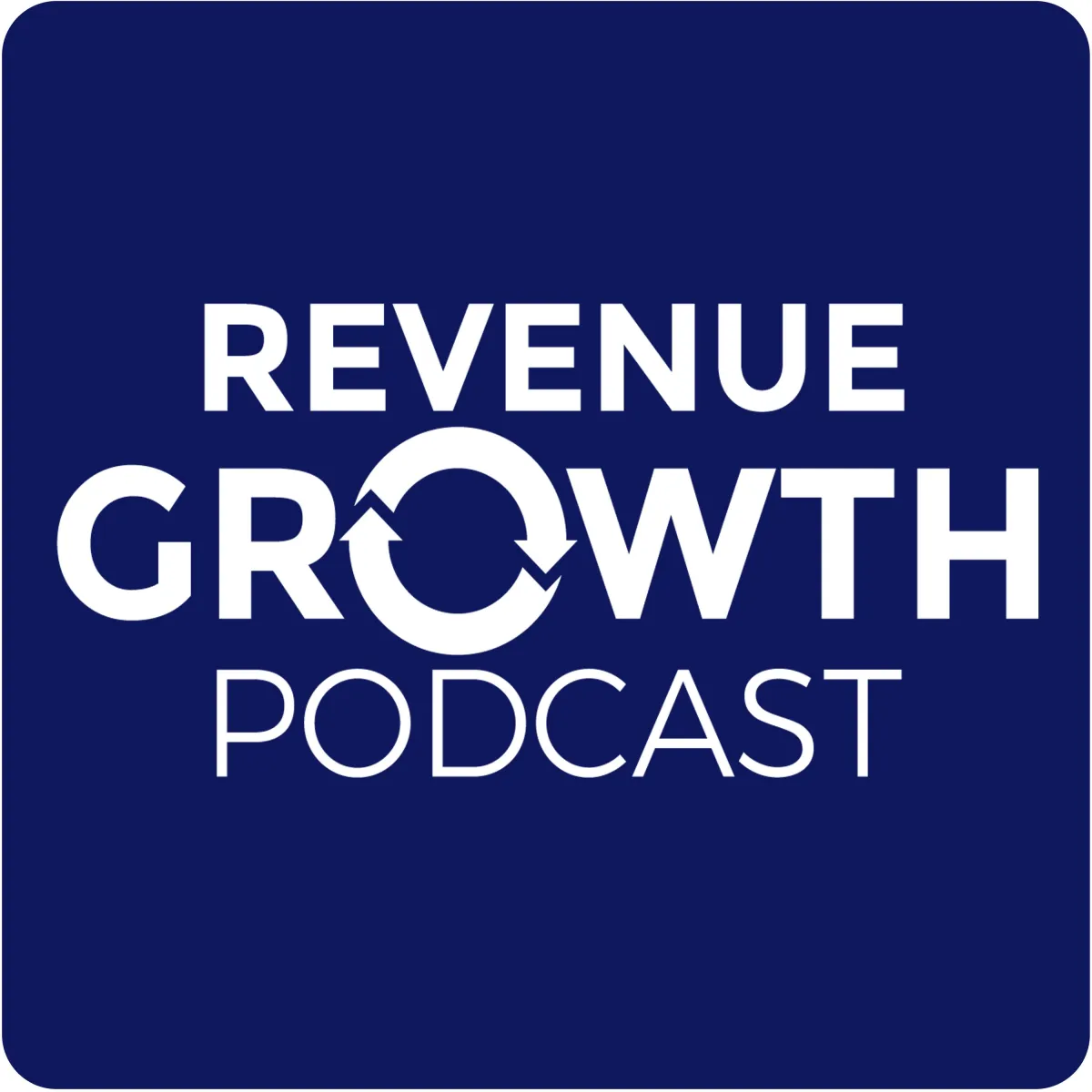Join Darrell Amy for the One Ideal Client Away Challenge,
April 10-14
www.oneidealclientaway.com
VISIONARIES AND INTEGRATORS
DISCOVER HOW TO ACCELERATE GROWTH
Learn how to build a powerful engine to drive exponential revenue growth.



REMOVE
BARRIERS TO GROWTH
Get the six barriers to revenue growth out of the way so you can accelerate.

DESIGN
YOUR ENGINE
2-day Revenue Growth Engine Design Workshop

ACCELERATE
YOUR GROWTH
Mentorship program to implement a high-performance growth engine.

IDENTIFY
YOUR BARRIERS TO GROWTH
If you feel stuck:
Like there is a glass ceiling of revenue that you just can't seem to break through
After working with thousands of entrepreneurs and executives and talking to hundreds of thought leaders I have identified six common barriers to revenue growth.
In a 20-minute conversation we will get straight to the heart of the matter, identifying your top barriers so you can breakthrough to the next level.
Our Ideal Client Profile
These are the types of companies we specialize in serving.
DESCRIPTION
Established companies with sales-teams that want to grow so they can create meaningful jobs and give to great causes.
DATA
Privately-held companies
Track record of generous giving
Part of a peer group or community of excellence.
DECISION MAKERS
Executive
Owner, Founder, President, CEO
Sales and Marketing Leaders
CRO, CSO, CMO,
VP Sales, VP Marketing
Funding Partner
Private Equity, Venture Capital

BUILD
YOUR REVENUE GROWTH ENGINE
Create a Custom Revenue Growth Engine®
Once you are focused on your Ideal Client now it's time to build a more powerful engine to accelerate growth!
In just two focused days you will create an actionable Plan to to generate immediate results that compound over time
A Powerful Revenue Flywheel that creates unstoppable momentum
Intense Focus on the types of clients or customers that can propel your business forward faster
High-Octane Fuel for your engine in the form of a message that gets attention
Scalable Processes for marketing and sales that drive net-new and cross-sell revenue that allow you to grow
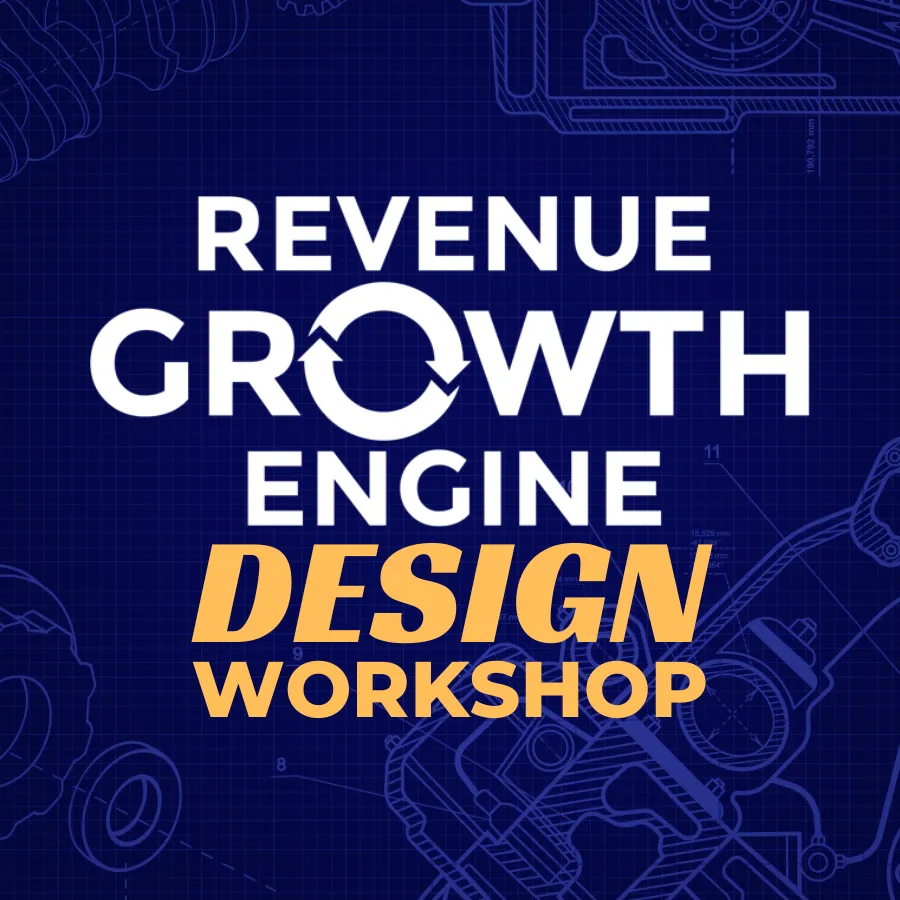

ACCELERATE
YOUR REVENUE GROWTH
Get Your Engine Firing On All Cylinders
Optimize, automate, and document your sales and marketing processes so you can enjoy exponential revenue growth.

If you are a leader at a company with a sales team, schedule your confidential consultation to discover:
The three biggest obstacles to revenue growth and how to remove them.
How other companies are creating Revenue Growth Engines.
Our vision to help purpose-driven companies scale their revenue and impact.
Real World Stories
Hear some real-world stories of companies building their Revenue Growth Engines®.
HOW WE CAN HELP YOU GROW FASTER

REMOVE
BARRIERS TO GROWTH
Get the six barriers to revenue growth out of the way so you can accelerate

DESIGN
YOUR ENGINE
2-day Revenue Growth Engine Design Workshop

ACCELERATE
YOUR GROWTH
Mentorship program to implement a high-performance growth engine
GET TO KNOW
DARRELL AMY
Darrell inspires and equips purpose-driven entrepreneurs to grow revenue so they can give back.
As the co-founder of the non-profit Kingdom Missions Fund, Darrell Amy noticed that the largest donations came from business owners, and he wondered how he could help generous business owners quickly grow revenue so they could give even more.
Darrell’s experience as a leader in sales and marketing has given him a unique perspective on what it takes to grow revenue. Distilling 27 years of experience, Darrell authored Revenue Growth Engine: How To Align Sales & Marketing To Accelerate Growth.
He is a member of the Forbes Business Council and he helps companies maximize growth through sales and marketing alignment. Darrell hosts the Revenue Growth Podcast and co-hosts the Selling From the Heart Podcast. He also volunteers as the executive director of the ManAlive EXPEDITION, an organization that helps men find healing and identity.
When he isn’t helping generous business owners grow their revenue in order to give more, he enjoys the outdoors including sailing, canoeing, and hiking. Darrell, along with his wife Leslie, enjoy spending time with their children and four grandchildren.

My BHAG
Help 10,000 businesses double revenue to generate $10 billion in new giving.
MAKE IT AN ADVENTURE!
TAKE THE ULTIMATE TREK AS YOU GROW YOUR REVENUE

Build your Revenue Growth Engine
Develop Physical Endurance
Trek to Everest Base Camp
Join adventurous entrepreneurs in an epic journey to scale your business as we train to trek to Mount Everest Base Camp!
BLOG
ACCESS OUR LATEST THINKING

Five Ways Sales Growth Helps (or Hurts) Enterprise Value
Not all revenue is created equal. Some types of sales growth drive more enterprise value than others. Smart business owners and executives recognize the ways that sales growth affects enterprise value.
Here are the top ways sales growth can be helping or hurting enterprise value:
1. One-Time vs. Recurring Revenue
Project revenue has a much lower value than recurring revenue. Salespeople love the excitement (and commission) of closing the big project deal. However, when it comes to building enterprise value, a steadily growing stream of recurring revenue is worth way more than one-time revenue. This makes sense when you realize that a business is typically valued based on expected future cash flow. Recurring revenue makes future cash flow much more predictable than hoping the sales team can continue to land projects.
2. Handshake vs. Contracted Revenue
“Our customers love us!” Virtually every business owner I’ve met believes that’s true. You may be in a highly relational business and believe that a handshake is more than enough. However, without contracts in place, the revenue is always at risk. Plus, if the business is truly built on a relationship, what happens when the business changes hands? Smart buyers recognize the importance of contracts and will discount an offer based on the existence and quality of the contracts.
3. Owner-Driven vs. Sales-Driven
Founder-dependence is a massive drain on company value. This is especially true when the founder wears the sales hat for the most important accounts. As the owner, it may feel good to be engaged with top accounts. However, the danger is that a buyer will tend to discount a business as they consider those accounts at risk if the owner leaves. The alternative to discounting is even worse. The buyer will expect the owner to stay on for an earn-out to ensure the key accounts remain solid.
4. Superstar vs. Regular Reps
Did the sales growth come from a superstar salesperson or was sales growth spread across the team? If you live by the superstar rep, you die by the superstar rep. Just as founder-dependence hurts the value of a company, superstar rep dependence also makes the buyer nervous about what happens if that top rep leaves. There are several possible solutions to this problem, but the best one is to ensure that the entire sales team is trained, coached, and enabled in a culture that supports high performance.
5. One Whale vs. Lots of Nice Fish
Just as salespeople like winning big project deals, they also like landing the whale accounts. While having major accounts can be good for a business, many times I’ve seen the business bend over backwards to serve a major account that is barely profitable. Since profit ultimately drives valuation, the low-profit revenue from this account has a negligible impact on enterprise value. Often the business directs a disproportionate amount of resources to the whale, reducing the level of attention and service given to other accounts.
Bonus: Fake Growth Because of Inflation
Last week I heard an excited business commentator say that GDP growth in the USA was 2.8%. Not to be a wet blanket here, but how much of the GDP growth was related to higher costs because of inflation? If you factor inflation into the mix, the GDP growth may be the opposite of exciting. In an inflationary period, businesses must factor inflation into what they actually call growth.
Sales get lulled into a false sense of success when inflation is not factored in. We’ve seen this over the past few years when asking a business owner about their sales growth. “We had a pretty good year! We grew 8% even in a tough market.” Yes, but how much did you increase your prices? If the price increase was 10% during that time period, the sales team effectively shrank by 2%. Plus, since the value of the dollar decreases year over year, inflation took an even bigger chunk. Year-over-year sales goals (and quotas) need to factor inflation into the mix. A price increase does grow revenue, but it does not represent business growth.
Action Items
There are many other things that could be added to this list. The point is that all revenue is not created equal. Some types of revenue drive enterprise value more than others. It is important for a business to understand how their sales practices and results are affecting the most important number: enterprise value.
1. Know Your Current Enterprise Value
It shocks me how few businesses know their current enterprise value. When it comes to the most important number in managing a business, enterprise value is often based on hearsay about what multiple some other business in the industry got during a sale. (We all know that no one exaggerates.) It is important for every business to have enterprise value on their scorecard. Of course, a business is only worth what a buyer is willing to pay. Fortunately, software and data analytics allow you to benchmark your business against other recent business sales. The software also factors in the items discussed in this article, along with many other fixable issues that drain the value of a business. (To learn more, visit https://value.valuecreationengines.com.)
2. Know How Much Money Your Sales Team is Leaving On the Table
You also need to understand how much money your sales team could be bringing in were they properly trained, coached, and enabled. The solution to sales problems is typically to hire more reps. However, hiring reps is incredibly expensive, if you can find them. Instead, smart businesses leverage data analytics to benchmark their sales team against the core competencies of sales. This not only gives an understanding of how much money is being left on the table, it also helps create a plan to improve the skills of the team, driving enterprise value. (For more on this Sales Team Evaluation, send me a private message.)
3. Create a Plan to Grow Enterprise Value
Armed with the knowledge about the current enterprise value and the potential of the sales team, you are now ready to create an effective plan to resolve the issues that hold back your enterprise value. You can implement strategies that drive predictable and profitable sales growth.
At the end of the day, this will focus your leadership team on driving value. This prepares the company to go on the market. Or, it may just make you fall in love with your business all the more. Either way is a win!
Discover the Enterprise Value of Your Company and What's Holding It Back

https://value.valuecreationengines.com
Originally published on Darrell Amy's LinkedIn.
PODCAST
GET FRESH IDEAS FOR GROWTH
Are you looking for ways to scale your business? Welcome to the Revenue Growth Podcast with Darrell Amy. This is the place for business owners, sales leaders, and marketing professionals to get ideas an inspiration to drive exponential revenue growth. Each week you’ll get actionable insights from the world
LET'S TALK!
ABOUT ACCELERATING YOUR GROWTH
